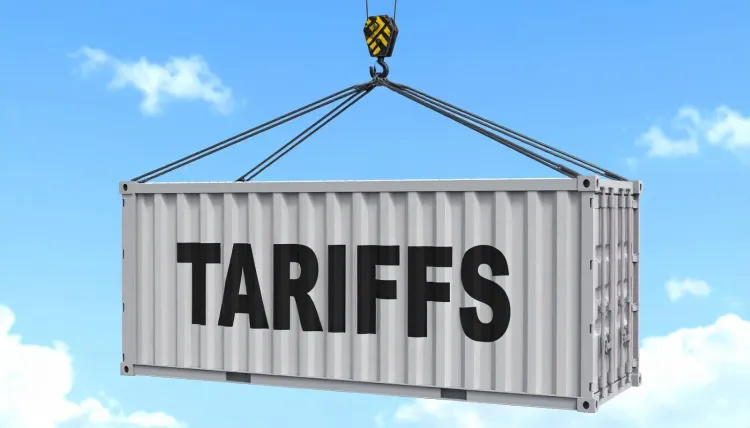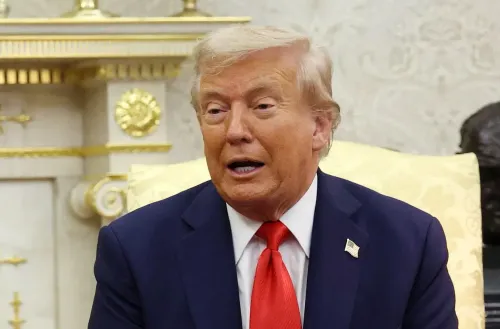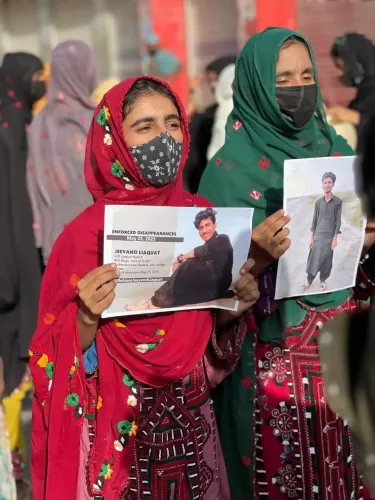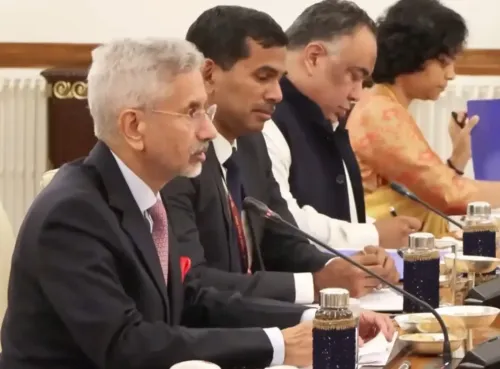Is India Strong Enough to Resist Trump’s Tariff Pressures?

Synopsis
Key Takeaways
- India is the world's fastest-growing economy.
- Resilience against tariff pressures is crucial.
- Building sustainable trade relationships is vital.
- Leadership in global trade discussions is necessary.
- Balancing national interests with global openness is key.
New Delhi, July 1 (NationPress) India's position as the world's fastest-growing economy empowers it to confidently resist tariff pressures and implement policies that safeguard its long-term interests, according to Raymond Vickery, Senior Associate at the Centre for Strategic and International Studies (CSIS) and former US Assistant Secretary of Commerce.
In an exclusive interview with IANS regarding the implications of US President Donald Trump's proposed tariff measures, Vickery emphasized that India should avoid yielding to transactional tactics that prioritize only short-term gains. Instead, it should focus on cultivating sustainable, mutually advantageous trade partnerships.
He noted that India’s trade agreement with the UK exemplifies this approach, as it promotes stability, reduces tariffs, and satisfies the requirements of both nations, allowing businesses to plan effectively for the future.
This stands in stark contrast to the erratic nature of Trump’s trade policies, which complicate long-term strategic planning.
Vickery expressed that Trump’s perspective on India overlooks its economic potential and reflects a narrow viewpoint that fails to acknowledge the advantages of a medium- to long-term alliance.
Highlighting India’s advantages, Vickery remarked that the nation possesses some of the finest technical talent globally and has a vast consumer market that is still on a growth trajectory.
He commended Prime Minister Narendra Modi’s administration for prioritizing national interests but cautioned that genuine prosperity will emerge from competing on a global scale.
Vickery asserted that India has progressed significantly beyond the outdated “license raj” mindset and is now equipped to take on the role of a global economic leader.
Regarding the agricultural and dairy sectors, he supported the Modi government’s decision to refrain from fully opening these industries to US firms at this time.
However, he suggested that past reforms should be revisited gradually to ensure fair competition.
Vickery encouraged India to assume a leadership position in multilateral trade discussions, particularly within platforms like the WTO, to uphold the principles of law in global commerce.
While confronting tariff “blackmail” may be daunting, he believes India is sufficiently robust to rise to the challenge and should collaborate with other major economies like Brazil to counteract unfair trade pressures.
He stated that India's future growth hinges on balancing national priorities with openness to global markets—on its own terms.









